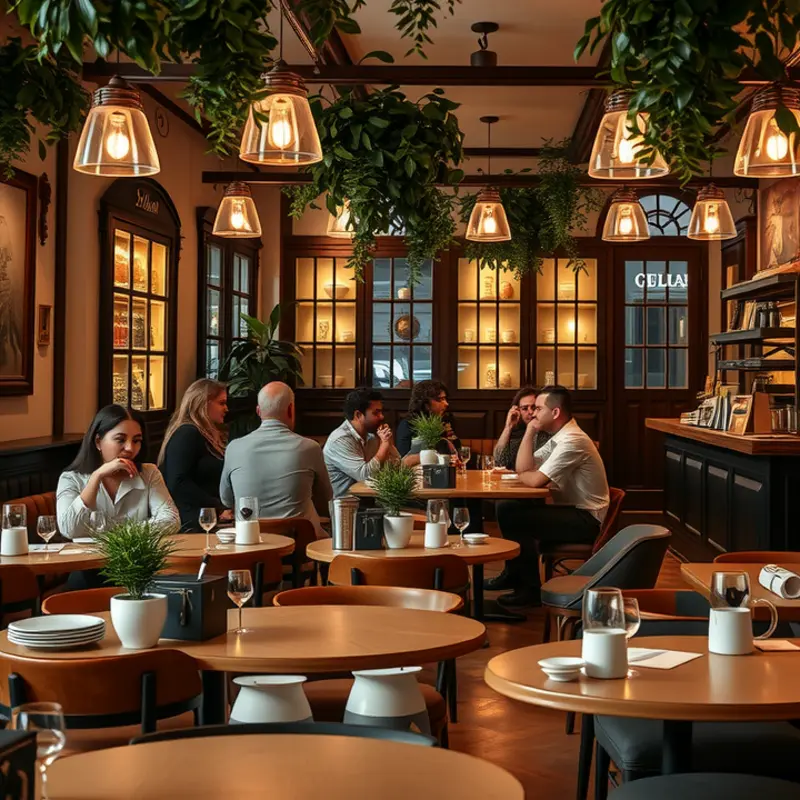Coffee isn’t just a beloved beverage; it’s a cultural cornerstone that brings people together across the globe. From the intricate ceremonies of Ethiopian coffee to the casual espresso breaks in Italy, coffee rituals provide insights into the values and traditions of different societies. This exploration uncovers the diverse practices associated with coffee, revealing its role in social bonding, cultural identity, and culinary heritage.
Ethiopia: The Birthplace of Coffee Ceremonies

Deep in the heart of East Africa lies Ethiopia, a nation celebrated as the cradle of coffee. In Ethiopia, coffee is more than a beverage; it is the core of an ancient and profound ritual. The Ethiopian coffee ceremony is a time-honored tradition that emphasizes hospitality and community. Central to this ritual is the practice of preparing coffee, a process that invites connection, warmth, and conversation.
A traditional Ethiopian coffee ceremony begins with the careful selection of green coffee beans. As guests gather, the host, typically a woman, starts roasting the beans over an open flame. The aroma of roasting coffee fills the air as everyone watches the beans turn from green to a deep, rich brown. The sound of cracking beans provides a soothing melody, setting the stage for the ceremony.
Once roasting is complete, the beans are cooled and then ground by hand using a mortar and pestle. This age-old method ensures that the coffee retains its essential oils and robust flavor. The ground coffee is then placed into a jebena, a distinctive clay coffee pot famed for its round bottom and long neck. The jebena is filled with water and set over a flame, where the coffee gradually brews.
While the coffee simmers, participants engage in discussions ranging from everyday matters to philosophical debates. The ceremony is not just about drinking coffee; it is a cherished time for reflection and bonding. Sharing this experience deepens communal ties and reinforces social connections.
When the coffee is ready, it is poured into small, handleless cups called sini, sometimes over a bed of fresh herbs for added aroma. The coffee is often served with a side of roasted barley, popcorn, or peanuts, complementing its rich taste. This first round is called abol, followed by tona and baraka for those who wish to savor additional rounds.
Acting as both a mirror and anchor of Ethiopian culture, the ceremony is a remarkable form of art. It encapsulates themes of hospitality and kinship, which are integral to daily life in Ethiopia. Guests typically spend hours in this convivial setting, allowing time for the flavors, friendships, and conversations to unfurl naturally.
In a world that often prioritizes speed and convenience, the Ethiopian coffee ceremony reminds us of the joy found in deliberate practices. Sharing such traditions encourages us to pause and engage deeply with those around us. For those interested in exploring more about global food cultures, visiting Ethiopia or participating in a traditional coffee ceremony offers a unique glimpse into a practice where history, culture, and community converge. To explore similar culinary influences, you can visit this guide on cultural influences on culinary practices.
Italy: Espresso Culture and Café Society

In Italy, coffee is an art form and a social institution. Espresso bars are the heart of Italian cities, bustling with life at all hours. Ordering a coffee in Italy is not a solitary act but an integral part of daily social interaction. As you walk through cobblestone streets in Rome or Milan, you’ll observe locals engaging animatedly at their favorite café, espresso in hand.
The day typically starts with a cappuccino, a harmonious blend of espresso, steamed milk, and foam. Italians regard this as a breakfast drink, best savored with a cornetto—a sweet pastry akin to a croissant. Sipping a cappuccino after 11 AM is seen by locals as a faux pas, a quaint cultural quirk reflecting a deep respect for tradition.
Afternoons are reserved for the beloved espresso, known simply as caffè in Italy. This small, strong shot is enjoyed while standing at the bar, a quick yet intense break in the day. It’s common to find Italians taking a moment from their routine for a conversation as they enjoy their espresso. Tending to friendships and savoring these breaks are embedded in the Italian way of life.
After a leisurely dinner, a ristretto might crown the meal. This concentrated espresso shot is shorter and more intense, providing a robust end to the evening. Here, coffee serves as a symbol of conclusion and contentment, ending meals on a high note while promoting post-dinner discussions.
Coffee etiquette in Italy transcends mere drinking habits. It emphasizes community, fostering an environment where relationships flourish. Baristas might know your name and coffee preference, creating a personal connection often lost in modern society. Such bonds offer an enduring sense of belonging in the bustling café scenes across Italy.
The design of Italian cafes supports social interaction, with narrow designs encouraging crowds to gather and converse. These communal spaces become the backdrop for vibrant dialogues, binding the community together over countless espressos.
If you’re curious about culinary traditions and food culture from around the world, Italian coffee rituals offer insight into how food and drink serve as cultural cornerstones. For those interested in exploring more about the cultural influences of global cuisines, consider checking out an article on culinary influences through trade.
This immersion into espresso culture demonstrates Italy’s dedication to savoring life in small sips, reminding us that coffee, in its essence, is not just a beverage but an experience to be shared.
Final words
Coffee rituals serve not only to enhance the enjoyment of this beloved beverage but also to reinforce cultural identities and foster community bonds. From the intimate Ethiopian coffee ceremonies to the lively, social atmosphere of Italian cafés, these traditions illustrate the rich tapestry of shared experiences that coffee offers. As you sip your cup of coffee, consider the stories and rituals that span the globe, connecting us all through this simple yet profound drink. In every cup lies a world of culture, history, and fellowship waiting to be explored.








